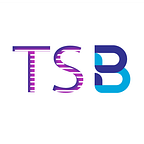Blockchain in Vehicle Registration (Part 38)
Welcome to the 38th part of the 100-part series on Blockchain.
The process of vehicle registration has always been an arduous and time-consuming task.
The current vehicle registration process
Various stakeholders are involved from buying a vehicle until the final registration is done. In the current scenario, when you buy a vehicle from a dealer, you need to take it to the registration authority to get the permanent registration number. It takes approximately 3–4 days for this request to get processed. Then you have to approach an insurance company to get the required insurance for your vehicle. Further, you have to approach the concerned authorities to obtain NOC and clearance for your vehicle.
The whole process is tedious and takes not less than seven days. Moreover, the customer’s information lies on several central databases of these stakeholders involved, which can even lead to fraud and misuse of the information in some cases. The whole process of vehicle registration can be simplified if all the information about the vehicle and the customer is stored on the Blockchain, and all the stakeholders have access to this information.
Vehicle registration with Blockchain
Let’s look at the various stakeholders involved and how Blockchain can make this complete process a seamless experience for the customer.
Manufacturer to Dealer
The manufacturer is the first stakeholder in the Blockchain network. He will be responsible for adding all the information of a manufactured vehicle, like manufacturing date, model no, engine, etc., to the Blockchain. He can then execute the sale of a vehicle to a dealer through a smart contract. Once the pre-agreed conditions between the dealer and the manufacturer are fulfilled, a smart contract gets executed, which will transfer the ownership of the vehicle to the dealer.
Dealer to customer
Through the smart contract, the dealer then executes the sale of the vehicle to the customer.
Registration of vehicle
And after the customer gets ownership of the vehicle, the smart contract is again executed, which will send requests to the concerned authorities for insurance and registration of the vehicle.
(i) The Insurance agency and the concerned Regional Transport Authority can validate the information about the vehicle and the customer through Blockchain. After the verification is done, they can provide the insurance and the registration certificate respectively for the vehicle.
Under this technology, there will be no need to take your vehicle to RTA for registration. The dealer can issue you the vehicle registration certificate once the RTA validates the information on the Blockchain.
(ii) Further, the customer can request the concerned authorities for NOC and clearance through Blockchain. The authorities will validate the information on Blockchain, and if all conditions are fulfilled, the NOC and clearance will be issued to the customer.
Thus, saving a lot of time and hassle for the customer. And who wouldn’t love such a seamless experience?
If you liked this article and want to know more about Blockchain, NFTs, Metaverse, and their applications, click the below link.
Happy learning!
